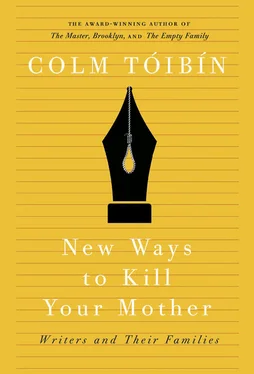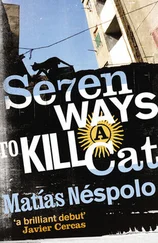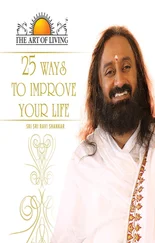In 1884, two years after the death of Henry James Senior, William, his eldest son, edited a selection of his writings. This publication caused Henry James the novelist to feel ‘really that poor Father, struggling so alone all his life, and so destitute of every worldly or literary ambition, was yet a great writer’. Henry James was thirty-nine when his father died and already, having published The Portrait of a Lady , one of the most famous novelists of the age. He could afford to be generous. His father’s writings centred on religious questions and did not stray into the territory of fiction.
When W. B. Yeats was thirty-nine, in 1904, he could look forward to eighteen more years of his father’s life; John Butler Yeats was said to be one of the few fathers who had lived long enough to be influenced by his son. He moved to New York at the end of 1907 and spent the last fourteen years of his life in the city. His letters to W. B. Yeats have been assembled by William M. Murphy and painstakingly typed and lie at peace in the library of Union College, Schenectady, where I read them in the summer of 2004, across the square from the dining hall where a portrait of William James of Albany hangs. In 1922 when John Butler Yeats died, John Quinn suggested that a new selection of his letters should be published. He wrote to W. B. Yeats: ‘I feel very strongly that instead of making extracts from his letters, his letters should be published in full as were the letters of Henry James.’
These letters from father to son, from New York to Dublin, from the great unfinisher to the connoisseur of completion, are among the greatest ever written. They centre on art and on life in equal measure. They are mostly good-humoured, but their author can be angry when roused. Both Yeats and Henry James wrote autobiographies that included careful self-positioning and some invention, and that caused difficulty to family and friends; but James wrote his books when both his father and brother were dead. ‘Four Years’, Yeats’s essay in autobiography, was produced while his father was still alive. His father now felt free to attack his son’s work. He wrote:
Had you stayed with me and not left me for Lady Gregory and her friends and associations you would have loved and adored concrete life for which as I know you have a real affection. What would have resulted? Realistic and poetical plays, and poetry in closest and most intimate union with the positive realities and complexities of life. And that is the world that awaits, so far in vain, its poet.
In families such as the Yeatses and the Jameses, where discussion of art and style was part of emotional life and writing was held in high esteem, attacks on each other’s tone in poetry and prose could be used as a way to mask other attacks, or make the attacks more fierce. Literary criticism became the coinage in which old family feuds were paid and repaid. Thus in 1905, having read The Golden Bowl , William James could write to his brother, who was sixty-two years old: ‘But why won’t you, just to please Brother, sit down and write a new book, with no twilight or mustiness in the plot, with great vigour and decisiveness in the action, no fencing in the dialogue, no psychological commentaries, and absolute straightness in the style?’ So too in June 1921, when his son was in his mid-fifties, John Butler Yeats wrote:
Never are you happier and never more felicitous in words than when in your conversation you describe life and comment on it. But when you write poetry you as it were put on your dress coat and shut yourself in and forget what is vulgar to a man in a dress coat. It is my belief that some day you will write a play of real life in which poetry will be the inspiration, as propaganda is of G. B. Shaw’s plays. The best thing in life is the game of life and some day a poet will find this out. I hope you will be that poet. It is easier to write poetry that is far away from life, but it is infinitely more exciting to write the poetry of life.
William James had begun as a painter and become a psychologist, but he was also a deeply self-conscious prose stylist. His style, he wrote to his brother in 1907, was ‘to say a thing in one sentence as straight and explicit as it can be made, and then to drop it for ever’, as opposed to Henry’s, which was, William wrote, ‘to avoid naming it straight, but by dint of breathing and sighing around and around it, to arouse in the reader who may have had a similar perception already (Heaven help him if he hasn’t!) the illusion of a solid object’.
The failure of Henry James Senior in life was compounded after his death by the failure of the collection of his writings. In 1887, when it was clear that sales had reflected critical reception, Henry, who had written to one reviewer telling him that his attack on the book had been contemptible and barbarous, wrote to William: ‘What you tell me of poor Father’s book would make me weep if it weren’t somehow outside and beyond weeping.’ Thus the two successful authors, William and Henry James, each in his prime, had managed to kill their father rather fatally, as it were, by letting his work be published in book form.
During his time in New York, John Butler Yeats was worried over and advised and bankrolled by his son the poet, who wrote about him and spoke about him as though he were an errant adolescent, a ‘youth of eighty without a care,’ as John Quinn put it. Slowly, over the years, father and son had exchanged roles. As a painter, John Butler Yeats could not compete with his elder son nor be overshadowed by him. But from the beginning of his exile in New York, John Butler Yeats also began to write stories and poems and a play, and in his letters he spoke of them to his son, as a starter to an older and more experienced writer. It is as if Senator Mann, having read his son’s Buddenbrooks , began to write his own faltering fiction, or Sir Leslie Stephen, having seen paintings by his daughter Vanessa Bell, began to dabble in drawings. In the annals of letters between father and son, there is no starker enactment of a slow and humiliating murder than in the letters about writing between John Butler Yeats and his son. The old man is an infant, innocent in his pride and hope, the son distant, godlike and all-powerful, ready to ignore and criticize and quietly destroy. The son is cold and ruthless; the old man desperate to be murdered. It is as though Oedipus and Herod and some third force out of Freud’s dark laboratory had joined forces.
At the turn of the century, John Butler Yeats incurred the wrath of the gods by praising his son Jack’s play in a letter to his playwright son. He wrote: ‘I am greatly disappointed to learn from Cottie [Jack’s wife] that you did not seem to care much for Jack’s “Flaunty”. I do think you are quite wrong.’ A few months later he wrote again: ‘Did I tell you about Jack’s play written for the puppet theatre. It is the prettiest and most poetical little play I ever read… You and Moore and Pinero and Arthur Jones had better take lessons from Jack. I assure you the play haunts me. He must have a real gift for construction.’ In 1901 and 1902, as new plays by W. B. Yeats were performed, his father became one of his critics. ‘I cannot tell you how much I enjoyed your play,’ he wrote in 1902, ‘but I maintain that the end won’t do.’ In 1913, having seen a production of The Countess Cathleen in New York, he wrote: ‘I think the play should have a prologue. It would help the illusion and give the necessary atmosphere. All at once we are expected without any warning to enter the world of miracle and hobgoblin, and it is too much.’
Some of John Butler Yeats’s letters to his son about his own writings date from the early years of the century. In 1902, he wrote:
Читать дальше












